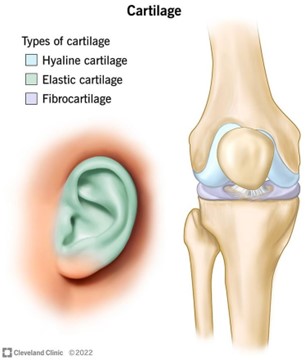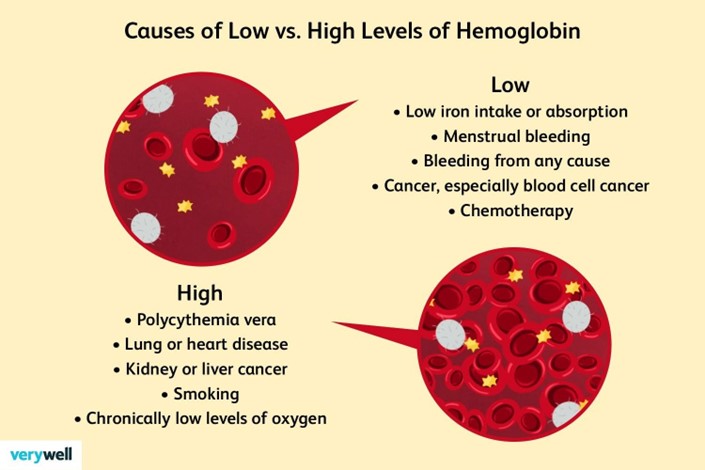A nurse is reinforcing teaching with an older adult client about physical changes that occur with aging. Which of the following should the nurse include as an expected age-related change?
Increased nail growth due to buildup of calcium deposits
Increased perspiration due to overproduction by the sweat glands
Increased cardiac output due to weakened heart walls
Increased joint stiffness due to loss of elasticity in joint cartilage
The Correct Answer is D
d. Increased joint stiffness due to loss of elasticity in joint cartilage.
Explanation:
The correct answer is d. Increased joint stiffness due to loss of elasticity in joint cartilage.
When teaching an older adult client about age-related changes, it is important for the nurse to provide accurate and relevant information. Joint stiffness is a commonly experienced age-related change that occurs due to the natural loss of elasticity in joint cartilage. As people age, their joints may become stiffer and less flexible, making movements and activities more challenging.
Option a is not the correct answer. Increased nail growth due to the buildup of calcium deposits is not an expected age-related change. Nail growth is primarily determined by factors such as genetics, overall health, and nutritional status, rather than calcium deposits.
Option b is not the correct answer. Increased perspiration due to overproduction by the sweat glands is not an expected age-related change. In fact, older adults may experience a decrease in the production of sweat, which can make them more susceptible to heat-related illnesses and dehydration.
Option c is not the correct answer. Increased cardiac output due to weakened heart walls is not an expected age-related change. With aging, the heart muscles may become stiffer and less efficient, leading to a decrease in cardiac output rather than an increase.
By focusing on the expected age-related change of increased joint stiffness due to loss of elasticity in joint cartilage, the nurse can provide accurate information and help the older adult client understand and manage this common aspect of the aging process.

Nursing Test Bank
Naxlex Comprehensive Predictor Exams
Related Questions
Correct Answer is A
Explanation
Answer: A. Apply light pressure to the inner canthus just after instilling the eye drops.
Rationale:
A) Apply light pressure to the inner canthus just after instilling the eye drops.
Applying pressure to the inner canthus (the corner of the eye nearest the nose) helps occlude the nasolacrimal duct. This action reduces the systemic absorption of the medication by preventing it from draining into the nasal passages and subsequently into the systemic circulation, thus enhancing the local effect of the eye drops.
B) Wipe the eye from the inner to the outer canthus with a sterile saline-moistened cotton ball.
While this action may help remove excess medication or discharge, it does not minimize systemic absorption. Instead, wiping the eye could inadvertently spread the medication to other areas, increasing the chance of absorption rather than reducing it.
C) Administer the medication drops directly into the lower conjunctival sac of each eye.
While placing drops in the lower conjunctival sac is a standard practice for delivering ophthalmic medications, it does not directly influence systemic absorption. The main goal is to ensure adequate dosing in the eye, but systemic absorption can still occur if the drops drain into the nasolacrimal duct.
D) Wait 5 min after instillation before instilling the drops in the other eye.
Waiting between instillations is good practice to prevent dilution of the first dose and to allow for absorption. However, this action does not significantly impact systemic absorption. It focuses more on ensuring that the first dose is effective before administering a second dose.
Correct Answer is A
Explanation
A hemoglobin (Hgb) level of 8.8 mg/dL indicates anemia, which is a decrease in the oxygen-carrying capacity of the blood. Fatigue and tiredness are common symptoms of anemia. When the body does not have enough hemoglobin to transport oxygen effectively, it can lead to feelings of fatigue and a lack of energy.
The other options are not directly associated with a low hemoglobin level:
b) "I have noticed that my fingernails are becoming thicker." Thicker fingernails are not typically associated with a low hemoglobin level. Changes in fingernails can be atributed to various factors, but they are not directly related to anemia.
c) "I have to go to the bathroom all the time." Frequent urination is not typically associated with a low hemoglobin level. It can be related to other factors such as urinary tract infections, diabetes, or diuretic use, among others.
d) "I notice that my hands are always shaky." Hand tremors are not directly associated with a low hemoglobin level. Tremors can have various causes, such as neurological conditions, medication side effects, or excessive caffeine intake, but they are not directly linked to anemia.

Whether you are a student looking to ace your exams or a practicing nurse seeking to enhance your expertise , our nursing education contents will empower you with the confidence and competence to make a difference in the lives of patients and become a respected leader in the healthcare field.
Visit Naxlex, invest in your future and unlock endless possibilities with our unparalleled nursing education contents today
Report Wrong Answer on the Current Question
Do you disagree with the answer? If yes, what is your expected answer? Explain.
Kindly be descriptive with the issue you are facing.
